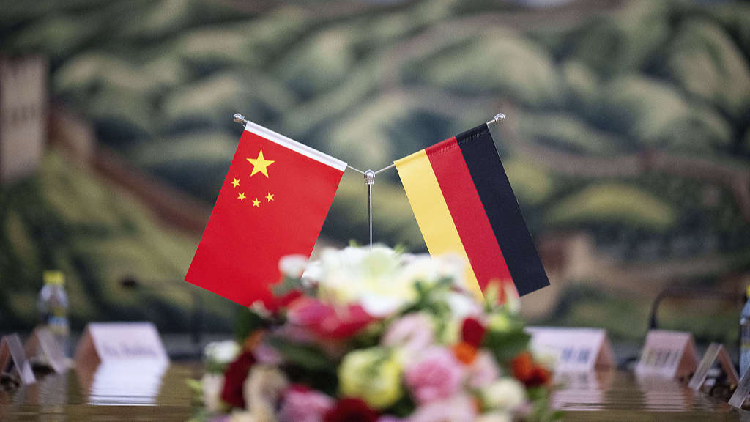China and Germany seek stronger collaboration as protectionism grows
China and Germany are looking to strengthen their collaboration in response to increasing protectionist sentiments.

The participants at the China-Germany Economic and Trade Cooperation Forum, held on Monday in Stuttgart, Germany, reached a clear consensus: international collaboration should be reinforced rather than weakened.
The forum, centered around the theme "New Opportunities for China-Germany Economic and Trade Cooperation in the Context of Global Supply Chain Restructuring," was organized by the China Council for the Promotion of International Trade (CCPIT).
Johannes Jung, who serves as the director of strategy, commercial law, foreign trade, and Europe at the Baden-Wuerttemberg Ministry of Economic Affairs, expressed his concerns about the rising tide of protectionism during the event. Jung noted that many internationally active companies are increasingly worried about these protectionist trends.
These companies require "open markets, fair trade relations and reliable international perception," along with the assurance that their foreign investments are secure. Jung emphasized the importance of equal, fair, and competitive conditions in foreign markets.
Jung underscored the necessity of regular political and private exchanges as crucial elements for enhancing mutual understanding and advancing cooperation.
Although trade protectionism is on the rise, Jung asserted that the path of economic globalization is irreversible, and all parties must work to strengthen international cooperation founded on trust.
Ren Hongbin, chairman of CCPIT, expressed a commitment to collaborating with German partners to explore trade cooperation potential, providing opportunities for high-quality German products, such as automobiles and agricultural machinery, to enter the Chinese market, and improving partnerships in industry and supply chains.
Ren also indicated that CCPIT aims to foster bilateral investment, create a favorable environment for business collaboration, and encourage more capable Chinese companies to invest in Germany.
Tim Wenniges, the deputy chief executive officer of the Entrepreneurs Baden-Wuerttemberg Association, described the forum as a "positive signal" indicating that "cooperation is both possible and desired."
Representing the economy of Baden-Wuerttemberg state, the Entrepreneurs Baden-Wuerttemberg Association comprises 65 associations from 50 industries, covering various sectors such as industry, services, trade, and craftsmanship.
Wenniges noted that China stands as a crucial trading partner for the German economy, with extensive economic connections encompassing mutual investments and collaborations.
"Increasing tendencies toward economic closure are evident worldwide," he said, "but businesses are resisting these trends. Together, we aim to promote innovation, engage in trade, and foster deeper exchanges in various fields."
Wang Xiao, director of Genertec International Holding Co., Ltd., highlighted that the global supply chain is undergoing significant transformation, which will inevitably impact the collaboration between Chinese and German firms.
"Enhanced cooperation based on the principles of openness, tolerance and mutual benefit, is the best way to overcome challenges and achieve a win-win result," stated Wang.
Huang Yiyang, the consul general of China in Frankfurt, emphasized China’s attractiveness as a destination for foreign investment, citing its open approach. He expressed hope that more German companies will seize the opportunities presented by the ongoing industrial transformation and technological innovation in China.
Lin Shunjie, chairman of China International Exhibition Center Group Limited, announced the upcoming third China International Supply Chain Expo, scheduled to start on July 16 in China. Lin revealed that his company has signed letters of intent and cooperation agreements for the exhibition with German partners, including Wolqe GmbH and the China Network Baden-Wuerttemberg.
According to Lin, the previous China International Supply Chain Expo was attended by 19 German companies from key sectors such as smart automobiles, clean energy, and advanced manufacturing. Their participation illustrates the interconnected nature of the global supply chain, and Lin is optimistic that even more German companies will join the upcoming event.
Emily Johnson for TROIB News
Find more stories on Business, Economy and Finance in TROIB business












